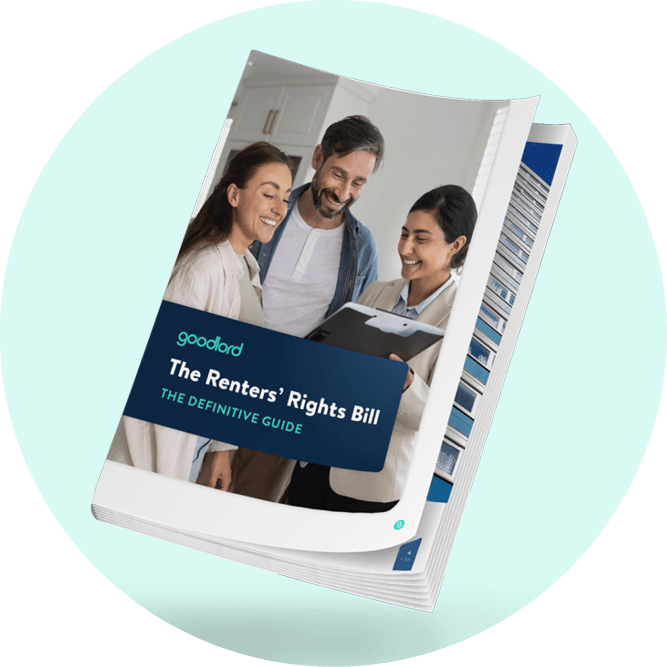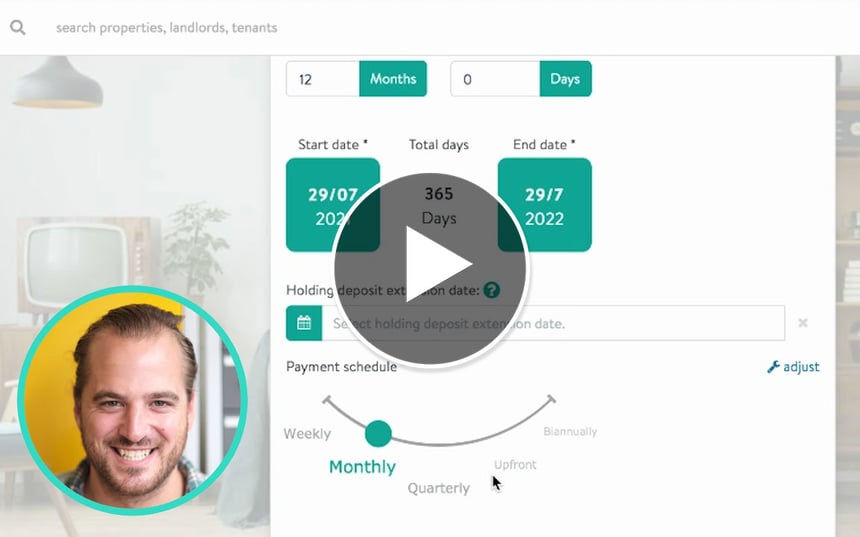Your complete guide to the English Tenant Fees Ban
Your guide to the English Tenant Fees Act and what letting agents and landlords need to be know about how it affects rent, tenancy and holding deposits, default payments and payments for assignment, novation or variation of a tenancy and early termination of a tenancy.
The Tenant Fees Act officially came into effect in England on 1st June 2019, and agents need to be aware of what this legislation covers to ensure they stay compliant. Here's your guide to the new legislation and its application. For more information, please refer to the official guidance at gov.uk.
Application
The Tenant Fees Act came into force on 1st June 2019 and applies to all applicable new tenancy agreements in England. Applicable tenancy agreements are:
- Assured Shorthold Tenancies (“ASTs”)
- Student accommodation
- Licences to occupy housing (included so that tenants of HMOS can’t be charged fees)
Transition period
There is a one year transition period for tenancy agreements that were entered into before 1st June 2019, which means either tenancies entered into (signed) before 1st June 2019 and statutory periodic tenancies that arose during the year after this date. Fees set out in agreements entered into before this date can be charged until 1st June 2020, including renewal fees.
After the transition period ends on 1st June 2020, the Act applies to all applicable tenancy agreements, regardless of when the agreement was entered into.
Any term that’s prohibited by the Tenant Fees Act in a tenancy agreement that was entered into before 1st June 2019 would no longer apply from 1st June 2020. If a letting agent or a landlord accepts a payment under one of these terms and doesn’t return it within 28 days, this will be a prohibited payment.
Permitted payments
Landlords or agents can't require tenants, or anyone acting on behalf of a tenant or guaranteeing the rent, to make any payments in connection with a tenancy unless they have specifically been made a permitted payment in the Act.
Permitted payments are:
- rent
- a refundable and capped tenancy deposit
- a refundable and capped holding deposit
- default payments for replacing lost keys or late payment of rent
- payments on assignment, novation or variation of a tenancy (when requested by the tenant)
- payments for early termination of the tenancy (when requested by the tenant)
- payments for utilities, communication services and council tax
Rent
Rent must be paid at regular and specified intervals and the amount charged should be equally split across the tenancy. In the first year of the tenancy, a tenant can’t be charged more at the start of the tenancy than at a later period.
In the first year of a tenancy, a letting agent or landlord can’t reduce the amount of rent after the tenancy has begun unless they’ve agreed this in writing with the tenant or under a rent review clause in the tenancy agreement, which allows for both a rent increase or decrease. A tenant can agree with a landlord or agent that they will pay a different level of rent in the second and subsequent years of the tenancy.
Holding deposits
Holding deposits are capped at no more than one week’s rent. A week’s rent is calculated as monthly rent x 12 ÷ 52 weeks.
Letting agents and landlords can ask tenants to pay a holding deposit to demonstrate their commitment to rent the property while they undertake reference checks, but they can’t ask for a holding deposit which is more than one week’s rent - any amount above one week’s rent will be a prohibited payment.
The holding deposit must be refunded within seven days if the tenant signs a tenancy agreement with them or if they decide to pull out of the arrangement with the tenant or fail to enter a tenancy agreement before the agreed deadline. The agreed deadline is 15 days from when the holding deposit is taken to when the tenancy is entered, but the letting agent or landlord can agree in writing to a longer deadline with the tenant.
The letting agent or landlord can retain the holding deposit if the tenant fails a right to rent check, withdraws from the application process or if the landlord and agent take all reasonable steps to enter the tenancy but the tenant does not, or the tenant has provided false or misleading information.
If the letting agent or landlord retains the holding deposit for one of the above reasons, they must let the tenant know the reasons in writing within either seven days of the decision not to enter into the tenancy agreement by the landlord or the deadline for agreement.
Tenancy deposits
Tenancy deposits are capped at no more than five weeks’ rent, where the annual rent of the property is below £50,000, and six weeks’ rent for properties with an annual rent of £50,000. Properties with an annual rent of £100,000 or more aren’t covered by the Tenant Fees Act as they aren’t assured shorthold tenancies.
The tenancy deposit caps are for the whole property, not per tenant - so you could not ask five tenants who would be jointly liable for the rent of the property to each pay a deposit of five weeks’ rent each.
Any deposit that a letting agent or landlord takes needs to be protected in one of the Government-backed tenancy deposit schemes within 30 days of taking the payment.
Default payments
Default fees can only be charged for the replacement of a lost key or other security device to give access to the housing or late payment of rent.
Charges for lost keys or security devices shouldn’t exceed the letting agent or landlord’s reasonable costs incurred for replacing the key or security device and these costs must be evidenced in writing to the tenant.
Default fees for late payments of rent can’t be charged until the payment has been outstanding for 14 days or more and the interest can’t be any more than 3% above the Bank of England’s base rate for each day that the rent is outstanding.
Payments on assignment, novation or variation of a tenancy (when requested by the tenant)
If the tenant requests a change to their tenancy agreement, such as a change of sharer, the letting agent or landlord can charge them up to £50 for the administration involved in amending the tenancy agreement or the amount of their reasonable costs, if higher, but they will need to be able to demonstrate any amount above £50 is reasonable with evidence such as invoices or receipts.
Payments associated with early termination of the tenancy (when requested by the tenant)
If a tenant requests to leave before the end of their tenancy, they can be charged an early termination fee, however this must not exceed the loss the letting agent or landlord has incurred in permitting the tenant to leave early. This means they shouldn’t charge any more than the rent that they would have received before the tenancy was originally to end.
Tenants will still need to pay their bills, which could include council tax, utility payments such as gas, electricity and water, and communication services, such as broadband or a TV licence.
If all or some of these bill payment are included in the rent, the tenant cannot be required to pay for these services separately (but they would still be required to pay any bills not included in the rent).
It's important to note that this article isn't exhaustive and doesn't constitute legal advice. For more information on the English Tenant Fees Act please refer to gov.uk.









